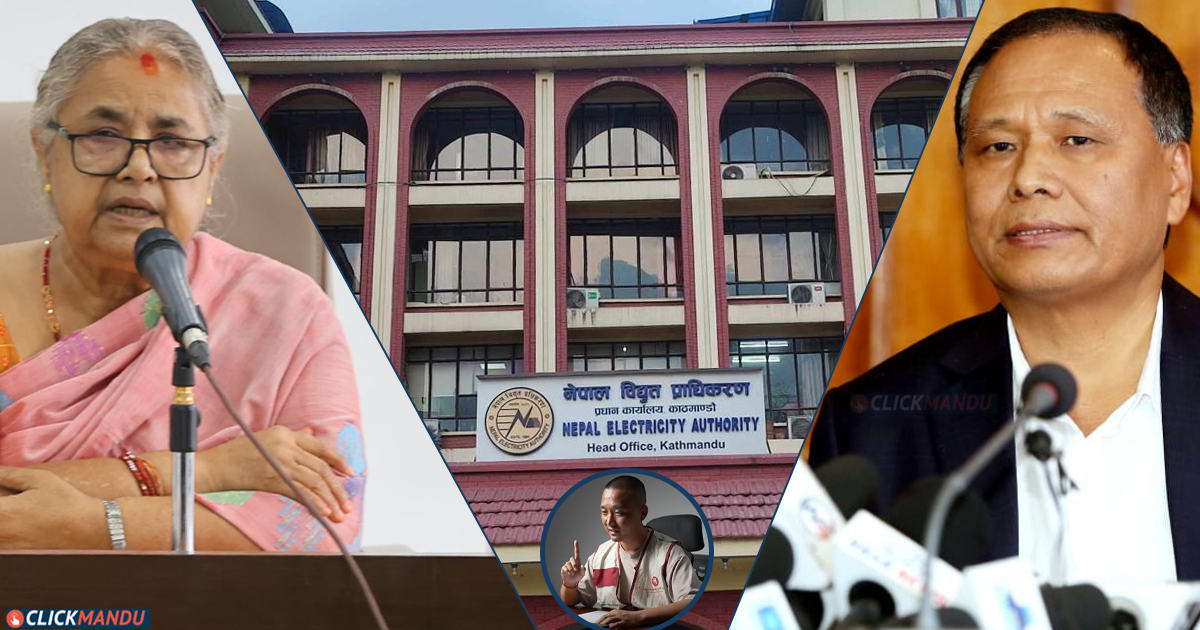Kathmandu: Prime Minister Sushila Karki has expressed concern over the long-standing issue of unpaid dues related to dedicated trunk power lines. Minister for Energy, Water Resources and Irrigation Kulman Ghising, who previously served as Managing Director of the Nepal Electricity Authority (NEA), had decided to collect the pending amounts soon after assuming office.
The NEA issued a public notice on September 28, warning that power supply would be disconnected within 21 days if dues were not cleared. According to the notice, industries must pay all outstanding charges on dedicated and trunk lines by October 19, or face disconnection.
Sources confirmed that the Prime Minister’s Office has written to the Energy Ministry seeking updates on the matter.
During the load-shedding era, many industries using dedicated feeder and trunk lines had paid their regular electricity bills. However, NEA maintains that they still owe premium charges—extra fees agreed upon for using electricity beyond normal supply levels. Industrialists argue that the NEA can only collect such charges under conditions approved by the Electricity Tariff Fixation Commission in its 103rd and 108th meetings.
While serving as NEA’s chief, Kulman Ghising took a firm stance that industries must pay premiums for all electricity consumed through dedicated lines. The controversy reignited after Ghising, now as Energy Minister, endorsed a ministerial decision reaffirming the NEA’s right to collect dues from the January 2015 to April 2018 period.
The NEA allowed industries to pay the amount in monthly installments over a period of up to 28 months. The total disputed amount is said to be around Rs 25 billion, including penalties.
When Ghising led the NEA, he had cut power to several industries over unpaid dues — decisions later reversed under Prime Ministers Pushpa Kamal Dahal and KP Sharma Oli, who had ordered reconnection. Ghising had defied those instructions, leading to his eventual dismissal.
At the time, Ghising argued that he was not obligated to follow verbal instructions from the Prime Minister or Energy Minister without written directives, and refused to implement the recommendations of the Lal Commission.
Industrialists, for their part, have long maintained that they should not pay premium charges when load-shedding was still ongoing. They argue that the NEA failed to provide data from its “Time of Day” meters to prove 24-hour electricity supply.
The issue became politically charged after reports emerged that some industrialists had met Sudhan Gurung, chair of Hami Nepal, who allegedly assured them, “We are the ones running this government — I’ll handle it.”
The NEA has insisted that it had provided uninterrupted power to certain industries, making them liable for premium payments. Ghising publicly criticized industrialists, accusing them of “profiting from light while the public sat in the dark.”
In response to widespread disputes, then Prime Minister Pushpa Kamal Dahal formed a high-level investigative commission led by former Justice Girish Chandra Lal on 9 January 2024 to examine the matter.
During 18-hour daily load-shedding, the NEA introduced a special scheme allowing industries to receive uninterrupted power via dedicated feeders, in exchange for paying up to 60 percent more in premium charges.
The Electricity Tariff Fixation Commission later decided that premiums could be imposed only when industries received continuous 24-hour power supply.
The dispute centers on the period between 2072 Magh and 2075 Baisakh, when load-shedding was still in place. The first and third periods — before the tariff was set (2072 Saun–Poush) and after the end of load-shedding (2075 Jestha–2077 Asar) — are not under dispute.
The Lal Commission concluded that industries should not be charged premiums for the entire disputed period. It recommended recalculating dues based on actual days when continuous supply was provided.
The Commission found that while NEA had claimed Rs 6.6 billion in unpaid dues (which with interest totals about Rs 25 billion), only a portion of this amount was legally valid.
It also stated that NEA’s billing during the initial six months of the scheme (2072 Saun–Poush) was invalid because the tariff had not yet been formally approved.
The Commission further ruled that post-load-shedding premiums (after 2075 Jestha) had no legal or practical basis, as regular tariffs had already been paid.
In conclusion, the Lal Commission found that NEA’s blanket demand for premiums was unjustified and urged recalculations based on verified supply records.
However, by deciding to reopen the issue and recover dues, Minister Ghising is seen as pressuring NEA’s Review Committee, which remains the legally mandated body to resolve the dispute.



Comment Here